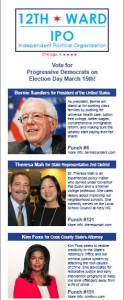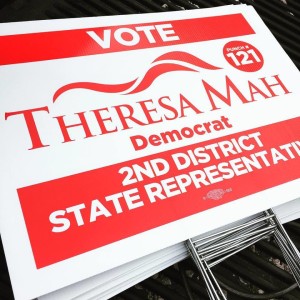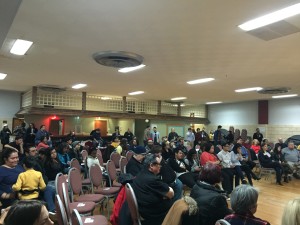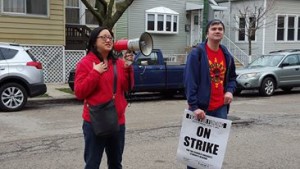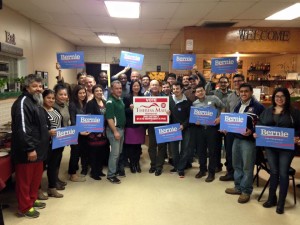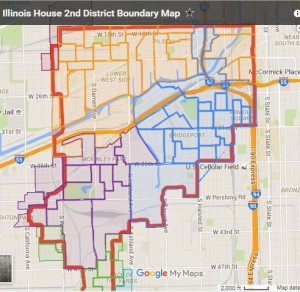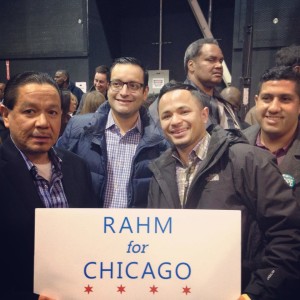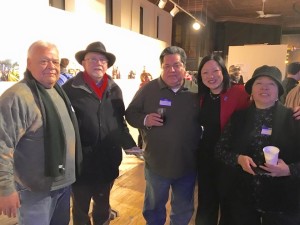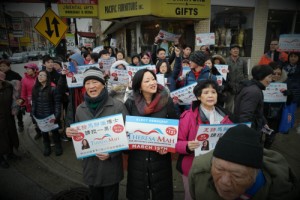A Perfect Storm
Chapter 2
Precision and Passion Set an Example for Progressives
A passion born in the small store run by her immigrant father, nurtured as a translator for Chinese San Franciscans, and brought to full bloom in her scholarly work in Asian studies. Everything about Dr. Theresa Mah’s historic campaign sprang from the desire of an emerging community to have a voice.
Did all of us in the 12th Ward Independent Political Organization fully grasp the historic importance of her challenge? I know that I underestimated the fervor and democratic aspirations of the unrepresented nationality. Chinatown is a ten minutes trip up Archer. There are 150 Chinese voters in my own precinct including an entire block of new bungalows on Hamilton. It might as well have been ten hours away. As Chinatown prepared to celebrate 100 years in Chicago, I couldn’t say that I had more than “Hi and Bye” relations with my Asian neighbors.
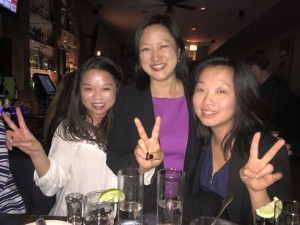
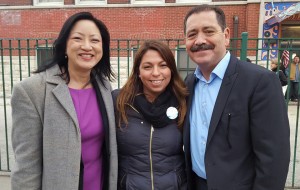
The machine regulars may have also underestimated the Asian potential when they redrew legislative maps after the 2010 census. The new 2nd legislative district demographics emerged as the most favorable battle field for Asian American political power. The area is one half Latino and the remainder is about equally divided into whites and Asians.
We put Theresa on our ticket. She was a star attraction at several of our events; we were happy attendees at many of her rallies and parades. IPO stalwarts Pete and Theresa Mendoza along with Danny Ferrales were exemplary as door knockers wherever needed. A neighborhood meeting they hosted at Tierra Caliente across from Kelly High was their stellar best practice. Our group did election day hustling at most of the McKinley Park precincts. Did we forge the maximum unity possible based on a once in a lifetime opportunity? Probably not.
I had seen progressives fall to the machine in four recent campaigns. In addition my optimism may have been affected by the tough fight I am concurrently waging with inoperable pancreatic cancer. I was (and still am) beating the odds, still combative and more alert than ever. But my energy level was reduced. A couple days every two weeks in the height of the campaign I was carrying a chemo pump in a fanny pack. On days when I was more horizontal than vertical, I joked that I was “practicing for my wake”.
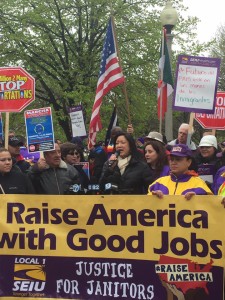
Even our Latino champion, Chuy Garcia, was hedging his bets early. In the end, he came through in classic fashion. He had stepped up in the ‘80s when he filled in for his compadre, the assassinated Rudy Lozano. More recently he had stepped up against Rahm Emanuel when Karen Lewis had to withdraw due to her own cancer battle. Chuy’s people reopened his Pilsen campaign office and gave Theresa the extra push she needed.
The large public employee unions were strangely passive. Reclaim Chicago, particularly through the Bridgeport Alliance, was deeply involved. The center of the struggle, not surprisingly, was located in the cooperation of a myriad of associations centered in Chinatown. Restaurant workers were a stable base. They provided the solid core that could anchor a broader front. Chinese from the suburbs and other Asian communities in Chicago joined in. News of Theresa was burning up WeChat, a Chinese version of Facebook. My banker, Bai Yuen, told me that she had ferried two loan officers from the Chinatown branch to vote late in the afternoon of Election Day.

Theresa’s south-of-the-river HQ was a boiler room of phone banking and canvassing. Her team kept pushing, methodical and disciplined. When I walked door to door with her in my own precinct, I had been pleasantly surprised at the genuine warmth shown by both Latinos and whites. I saw many positive flashes: Theresa’s grace on the porches, her identification with working families as well as immigrants, the precision of each step in her campaign. The Theresa team was scrupulous in record keeping and petition gathering. When she was not chatting on countless porches, she was raising funds by phone. Her hard core of white, Latino, and Chinese staffers linked up with existing networks many of which had formed a year earlier in the mayoral contest.
A few days after her smashing victory, I asked one of her most dedicated campaigners, Yanying Jiang, how they had succeeded in registering record numbers of voters. Yanying, who commands three Chinese dialects as well as English, detailed their intricate network of local leaders. She trained key people in senior homes, community centers, and neighborhoods. She armed them with the steps and specifics of how and when people could register and vote. I’d never seen Get Out the Vote performed so flawlessly.
In politics, things happen. Confusion and complication are part of the turf. Many in our IPO were initially taken aback when our longtime nemesis, the neo-liberal Alderman George Cardenas, jumped on Theresa’s surging coat tails. His team was busily affixing his campaign posters to fences all over the neighborhood, most often without asking for permission. Some of his signs implied a Cardenas/Mah slate. The unasked questions: “Is George playing Theresa or is she playing him?” and “Does Theresa really have a choice? Is there a path to victory without at least a few prominent Latino endorsers?”
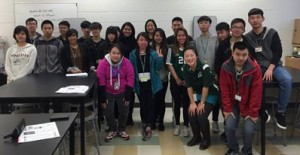
In the early stages, Theresa had been unable to attract support from any Latino politicos. Her political instincts led her to take advantage of any Democratic elected official who would pose with her for a picture. The unstated message was “I’m holding you to the vision of inclusion. Democrats need to live up to ideals. I hope you realize that an insurgent Asian candidate can energize an excluded segment for future elections at the city, state, and national level.”
As things played out in the campaign, George was the tail to Theresa’s dog. Weakened by his association with Rahm Emanuel, he failed in his bid snatch the post of ward committeeman. For her part, Theresa had demonstrated a willingness reach out beyond her own nationality.
U.S. representative, Luis Gutierrez, was a second Latino figure who endorsed her. He, like Cardenas, has dropped in popularity on the Southwest Side due to his Rahm love. A Theresa Mah press conference to announce her Latino backers at first seemed to result in disaster. Family members of her opponent, Alex Acevedo, staged a shamelessly racist counter to her photo op.
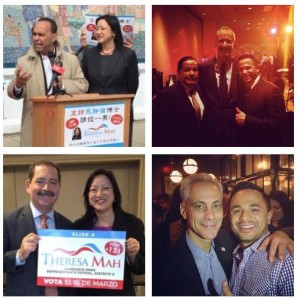
In an irony to beat all ironies, the Acevedo placards called attention to Cardenas’ Hispanic Democratic Organization (HD) history. In fact the Acevedo attempt at dynasty was a start-to-finish HDO maneuver. Young Acevedo had been the chairman of Latinos for Rahm. The Acevedo posse mocked Gutierrez as a “chacalacca” (chatterbox) and a sellout. Despite Gutierrez’s popularity decline, the Puerto Rican congressman was not someone to drive out of Pilsen. He is, after all, the foremost national spokesperson for immigration reform.
The Acevedo crowd disrupted Theresa’s symbolic show of Latino/Asian unity by interrupting, pushing, and shoving. Shouts of “chink” were heard more than once. There, in Pilsen’s Tenochtitlan Plaza, where a stone eagle clutches a snake atop a concrete obelisk, the Acevedo mob had dishonored Mexican nationalism.
Many Mexican voters were turned off by the shameful display of racism towards Asians and Puerto Ricans. Chinese voters were galvanized. Not long after that Thresa gained the formidable ground troops of Chuy Garcia. Many of Chuy’s activists had known Theresa from immigrant rights mobilizations and from the mayoral campaign. Proof of the Acevedo miscalculation came as polls were closing on election day. A happy group of Latino supporters of Theresa Mah bounded into her victory party holding aloft the tapes proving that she had bested young Acevedo in two Pilsen precincts. Those polling places were at Cooper School, a stone’s throw from the senior Acevedo’s favorite watering hole.
Theresa had made the calculated and correct move to court all possible Latino unity. Though many in the ward harbored resentment against Cardenas, it is not clear that she lost an appreciable number of votes. She simply outshined Cardenas as well as young Acevedo, both of whom have worn out their welcome with former supporters.
In the aftermath of the Theresa victory, a hilarious post from the Acevedo camp went viral. It showed their thuggish, entitled mentality. Alex’s brother, Eddie Jr, was taped by Alderman, Danny Solis. The Acevedos were trying to re-live their past days of HDO glory when the Latino heavy weights behaved as a unified machine. In former times they could corral the Chinese vote the old fashioned way. Eddie Junior’s profanity filled, street call-out became an object of amusement throughout the progressive community. Listen here to the requiem of the HDO.

The road ahead is hopeful and perilous. Despite the complexity of the alliances and the hidden agendas, the voters of the 12th ward rose to the occasion. The Mah campaign and the independent activity of the IPO and other groups gave organization to popular aspirations. But it was the common sense of hundreds of voters that won the day. An astonishingly unified Asian population rose to a progressive call for inclusion. She won around 80% in precincts flanking the restaurant district.
A majority of the ward agreed that the alderman was not to be trusted in his move to grab another lever of power in the Democratic Party. In spite of any misgivings about the Cardenas/Mah association, all was well. It ended swell.
The task ahead is to build more multi-national unity, to return to the ethos from the days when the original IPO of Lozano and Garcia embraced Harold Washington. In this contest we experienced a progressive nationalism emanating from Chinatown. We vanquished non-progressive identity politics that projected a false, self-serving concern for the Latino community.
Our organization is stronger than ever, girding up to defend Theresa when she campaigns anew in two years. Her campaign was like a school teaching us how to win.

